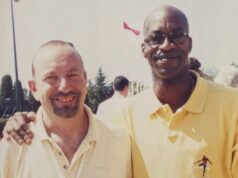TO: questions@psychedonline.org
FROM: XXXXXX@clv.uk
SUBJECT: Fan Violence
DATE: 9/23/02, 16:47
I am very concerned about the amount of violence that has come up lately in sports. I am not talking about the athletes themselves but the fans. Having lived in England several years ago, I am very familiar with the problem of soccer hooliganism in Europe, I was astonished to see this type of behavior in the U.S. at what seems to be an ever increasing scale. Earlier this month, a father and son cam out of the stands to attack a coach. Games are even being affected. The Redskins- Eagles game on Monday night was delayed when the Eagles team had to leave their bench as a result of pepper spray which drifted onto the field from the stands. It seems that police had to use it in order to stop a fight between fans. Any thoughts on what’s going on? How to stop it?
A concerned soccer fan
TO: XXXXXX@clv.uk
FROM: questions@psychedonline.org
SUBJECT: Re: Fan Violence
DATE: 9/24/02, 17:29
Response: You are right. There is a growing frequency of violence surrounding sporting events. It wasn’t long ago that going to the sports arenas was considered a wholesome day for the family. It is sad to say that this has changed. The two incidents you refer to are horrifying, but they are just a drop in the proverbial bucket. Below are some other examples:
- Clemens throws at Piazza. The crowd waits for the retaliation. It might as well have been a prize fight.
- Keashon Johnson of the Tampa Bay Buccaneers charges aggressively and screams at his coach over a difference of opinion in play-calling.
- A hockey player is hired to be “the enforcer.” His role is to strike fear in the opposition so that they will not score a goal. Professional teams will pay this player a lot of money.
One factor in the increase in violence among fans is an emotional disconnection from their own lives. They have difficulty empathizing with others’ pain. Some of this is caused by watching violence on television and computer screens. If you watch the reaction of the first base umpire and the second baseman of the Chicago White Sox in the incident you mentioned, you can see that they watch the violent event and don’t get involved. They don’t connect with what is really happening.
Another factor is the excessive importance of winning. This “win at all costs” mentality has spread from the pros into the sports of our children as well. There was a tragic incident at an ice skating rink. A father killed his son’s coach in front of the entire hockey team over some disagreement about coaching methods. A new form of father-son bonding event is growing. “Let’s spend the afternoon together and beat up the coach.”
Sports organizations have become more aware of the growing danger that players, fans and now coaches are exposed to at these events. New rules and policies have been initiated in an attempt to stem the tide. This is especially true since the trauma of 9/11/01.
Fans wearing Boston Red Sox jerseys have been told to take them off before they entered Yankee Stadium for fear of fights breaking out between fans of opposing teams. Fans put on the uniform and feel like they are a part of the team.
In an attempt to reduce violence, stadiums have also limited the sale of alcohol – which is often the fuel for aggressive behavior. Major league baseball has mandated that no beer should be sold after the sixth inning. I don’t mean to be light hearted about such a serious subject, but the largest line in the arenas switched from the brew-line to the urinal. Too many famous professional athletes have been involved in substance abuse and criminal behavior (see article in this issue).
More needs to be done to resolve the issue. In order to have a significant impact, players are going to need to become involved. Fans – both young and old – emulate what they see their heroes doing. It follows then that there will only be a reduction in fan violence when the payers themselves decrease their aggression.
Paul Schienberg, Ph.D.












